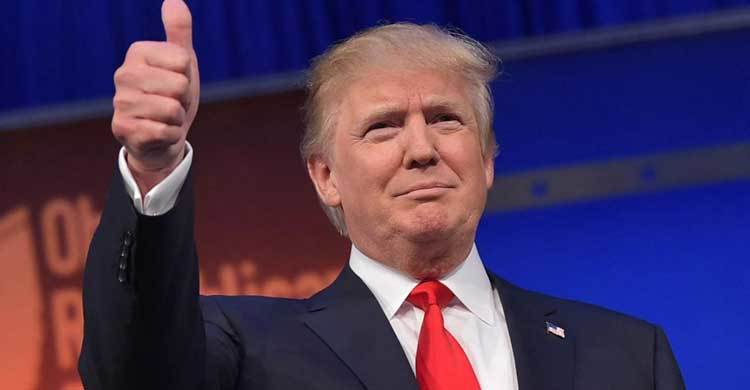In eulogizing Schlafly, Trump sees spiritual ally

Donald Trump eulogized conservative icon Phyllis Schlafly Saturday, praising her as an underdog and linking the anti-feminist movement she led to his anti-establishment campaign.
‘She loved her country, she loved her family and she loved her god,’ Trump said at the Cathedral Basilica of St. Louis. ‘The legacy will live on every time some underdog outmatches and outguns, defies the odds and delivers a win for the people.’
‘America has always been about the underdog and always been about defying the odds,’ he added.
Schlafly died Monday at 92. An early supporter of the Religious Right, she was most well-known for her opposition to the Equal Rights Amendment in the 1970s and becoming one of the leading female critics of the feminist movement, reports CNN.
Trump praised Schlafly for being ‘America First,’ a phrase he’s used to articulate his international policies on trade, immigration and other global affairs.
‘And in all her battles, she never strayed from the one guiding principle: she was for America and was always ‘America First,’ he said. ‘People have forgotten that nowadays. With Phyllis, it was America First.’
Trump - who famously never apologizes, at least not publicly - also said Schlafly was someone who ‘never apologized.’
‘She never wavered, never apologized and never backed down in taking on the kingmakers. She never stopped fighting for the fundamental idea that the American people ought to have their needs come before anything or anyone else,’ he said.
Trump said Schlafly believed in the power of everyday American to challenge ‘the rigged system’ he said.
‘The idea that so called little people or the little person that she loved so much could beat the system often times the rigged system, you’ve been hearing a lot about it,’ he added. ‘That the American grassroots is more powerful than all of the world`s special interests put together. And that`s the way Phyllis felt.’
In her latest book - ‘The Conservative Case for Trump’ - released Tuesday, Schlafly argued that conservative Christians should follow high-profile evangelical leaders such as Liberty University President Jerry Falwell Jr. and Family Research Council President Tony Perkins in supporting Trump’s candidacy.
‘Trump has gone to great lengths to court national leaders in the social-conservative movement and has convinced many of the most prominent ones that he genuinely supports their policy positions,’ she and co-authors Ed Martin and Brett M. Decker wrote.


